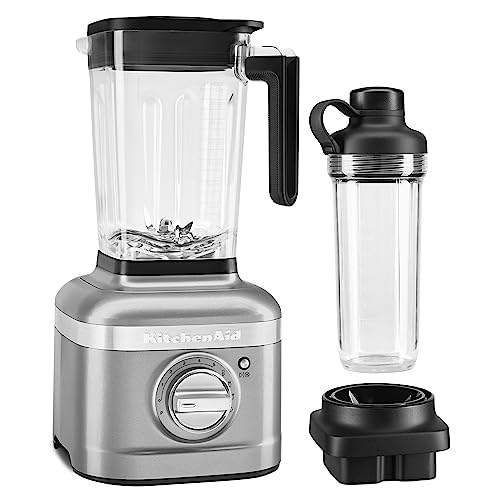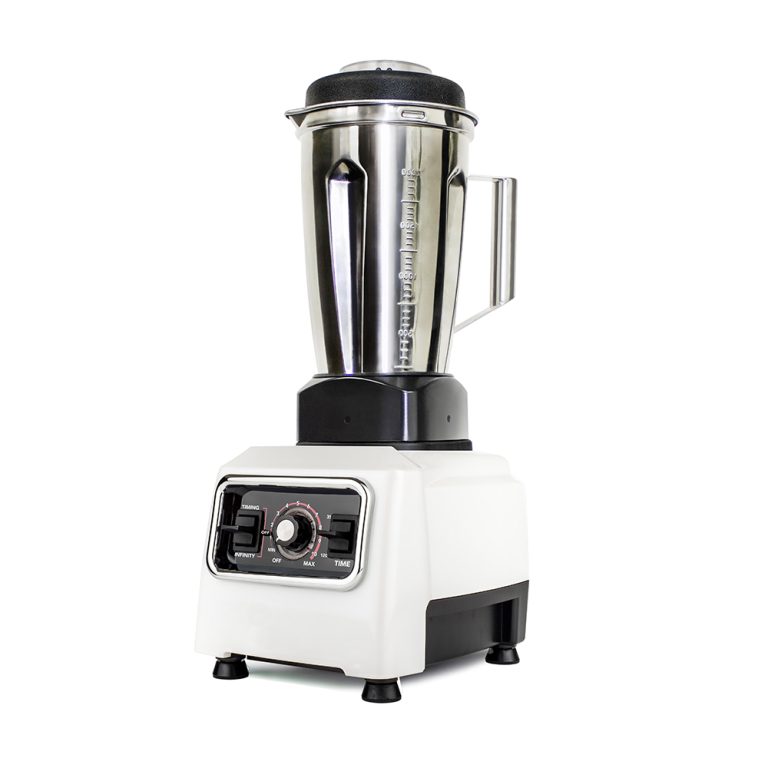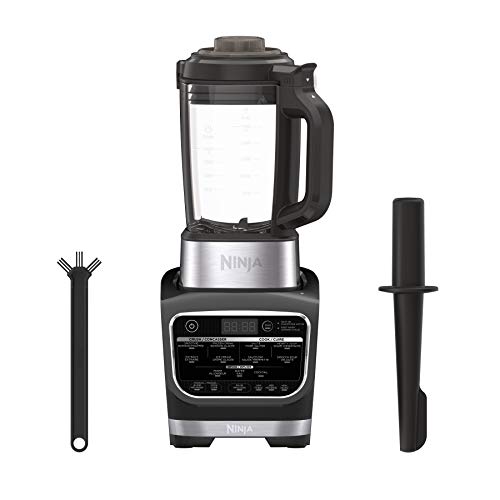Blender Vs. Juicer : Which Machine Packs a Powerful Punch?
Blender and juicer serve different purposes: a blender is used to blend and combine ingredients, while a juicer extracts juice from fruits and vegetables. When it comes to selecting the right appliance for your needs, it’s essential to understand their differences.
Blenders are capable of processing a variety of ingredients, including fruits, vegetables, and even ice, to create smoothies, soups, and sauces. On the other hand, juicers are designed specifically to extract the liquid content from fruits and vegetables, resulting in nutrient-dense juices.
Understanding the distinctions between these two appliances will assist you in making an informed decision based on your preferences and dietary goals. We will delve into the unique features and benefits of blenders and juicers to help you determine which one is better suited to your needs. So let’s dive in and explore the world of blender vs. Juicer!

Credit: www.amazon.com
The Battle Of Appliances
In the battle of appliances, two heavyweights go head-to-head: the blender and the juicer. Both appliances offer unique benefits and have their own devoted fan bases. In this blog post, we will dive into the history of these appliances and explore the key differences between them.
A Brief History
Blenders have been a staple in kitchens for decades, with the first electric blender hitting the market in the early 1900s. Originally designed for making milkshakes and soups, blenders quickly became a versatile tool for pureeing, emulsifying, and crushing a variety of ingredients.
On the other hand, juicers have a more recent history, emerging as health-consciousness increased in the mid-1900s. Juicers are specifically designed to extract juice from fruits and vegetables, usually by separating the juice from the pulp.
Key Differences
When it comes to design, blenders and juicers have some notable distinctions. Blenders usually have a pitcher-shaped container with a blade mechanism at the base, allowing for the blending or pureeing of ingredients. Juicers, on the other hand, utilize a mechanism that separates the juice from the fiber, resulting in a more watery consistency.
Blenders are generally more versatile than juicers, as they can handle a wide range of ingredients and functions. They can be used for making smoothies, soups, sauces, and even grinding coffee beans or nuts. Juicers, however, are primarily used for extracting juice, making them ideal for those who want to incorporate more fresh juice into their diet.
A major difference between blenders and juicers is the texture of the end product. Blenders produce a smooth and thick liquid, while juicers yield a thinner and pulp-free juice. The choice between the two depends on personal preference and intended use.
When it comes to nutritional content, juicers have the edge. By separating the pulp from the juice, juicers make it easier for the body to absorb the nutrients, vitamins, and minerals present in fruits and vegetables. Blending, on the other hand, incorporates the entire fruit or vegetable, including the fiber.
Another consideration is clean-up. Blenders are generally easier to clean, with removable blades and dishwasher-safe parts. Juicers, on the other hand, have multiple components that require thorough cleaning to avoid build-up and corrosion.
Cost is also a factor to consider. Blenders tend to be more affordable compared to juicers, especially high-end juicers that are specifically designed for maximum juice extraction.
In conclusion, both blenders and juicers have their own unique features and benefits. The choice between the two ultimately depends on personal preferences, intended use, and budget. Whether you prefer a thick smoothie or a fresh glass of juice, both appliances can be a valuable addition to any kitchen.
Blender: The Multipurpose Marvel
Blenders are undoubtedly the go-to kitchen appliance for anyone looking to make healthy, delicious, and versatile food and drinks. Whether you want to blend smoothies, puree soups, whip up a batch of homemade nut butter, or even make your own baby food, a blender is a must-have tool in any kitchen.
Versatility In Action
A blender’s true power lies in its ability to perform a wide range of tasks with ease. From breaking down tough ingredients, like fibrous vegetables and ice, to creating silky smooth textures, a blender is the multipurpose hero you need. Its powerful motor and sharp blades effortlessly transform a variety of ingredients into a velvety-smooth consistency, allowing you to unleash your creativity in the kitchen.
With a blender, you can enjoy a diverse array of recipes, including:
- Fruit smoothies packed with vitamins and antioxidants to start your mornings off right
- Creamy and nutritious soups that warm your soul
- Homemade nut milks that are free of additives and preservatives
- Decadent and healthy ice creams made from frozen fruits
Nutrient Retention
One of the greatest benefits of using a blender is its ability to retain the nutritional value of the ingredients you blend. Unlike juicers, which separate the pulp and fiber from the fruits and vegetables, blenders blend everything together, ensuring you get the full spectrum of nutrients.
Here’s why nutrient retention matters:
| Benefits of Nutrient Retention | How a Blender Helps |
|---|---|
|
|
|
|
By blending rather than juicing, you maximize the nutritional benefits of your ingredients, helping you achieve optimal health and well-being.
Juicer: The Liquid Nutrition Specialist
A juicer is a liquid nutrition specialist, extracting the pure goodness from fruits and vegetables while ensuring the retention of essential nutrients. It offers a convenient way to incorporate a variety of fruits and vegetables into your daily diet, providing a healthy dose of vitamins, minerals, and antioxidants.
Extracting Pure Goodness
Juicers work by extracting the juice from fruits and vegetables, separating the liquid from the insoluble fiber, and pulp. This process ensures that you can directly consume the pure, nutrient-rich juice, providing a concentrated source of essential vitamins and minerals.
Fiber Matters
Although juicing removes the fiber from fruits and vegetables, it still retains a significant amount of essential nutrients. Additionally, consuming the juice allows for easy digestion and quick absorption of nutrients by the body, providing a rapid source of energy and nourishment.
Comparison In Practical Scenarios
In the battle between blender and juicer, it’s important to consider their performance in practical scenarios. Let’s delve into the key factors: smoothies vs. juices and meal prep and clean-up.
Smoothies Vs. Juices
Smoothies are a popular choice for many health-conscious individuals, and for good reason. They offer a convenient and delicious way to incorporate fruits, vegetables, and other nutritious ingredients into your diet. With a blender, you can easily whip up a smoothie by blending these ingredients together, retaining the fiber and nutrients.
On the other hand, juicing allows you to extract the liquid from the fruits and vegetables, leaving behind the pulp and fiber. This creates a smooth and concentrated drink, rich in vitamins and minerals. Juices are particularly favored for their quick absorption into the bloodstream, providing a burst of energizing nutrients.
Meal Prep And Clean-up
When it comes to meal prep and clean-up, blenders have the upper hand. They are versatile kitchen appliances that can handle a wide range of tasks. Not only can you use a blender to make smoothies, but you can also use it to create soups, sauces, and even nut butters. With a blender, you have the flexibility to experiment with various recipes and create a variety of meals.
However, it’s important to note that blenders can be a bit more challenging to clean compared to juicers. They typically have multiple parts that need to be disassembled and thoroughly washed. This can be time-consuming, especially if you’re in a hurry. Juicers, on the other hand, tend to have fewer parts and are often easier to clean and maintain.
In conclusion, when choosing between a blender and a juicer, consider your specific needs and preferences. If you enjoy the convenience of quick meal prep and don’t mind the extra cleaning, a blender might be the ideal choice. On the other hand, if you prioritize a concentrated dose of nutrients and easy clean-up, a juicer could be the better option.
Which Machine Fits Your Lifestyle?
Choosing between a blender and a juicer depends on your lifestyle and health goals. Blenders are ideal for making smoothies, while juicers extract more liquid. If you prefer fiber-rich drinks, a blender may be the better fit. However, if pure juice is your preference, a juicer could be more suitable for your needs.
Considerations For Your Needs
Choosing between a blender and a juicer can be a tough decision, especially when it comes to finding the machine that fits your lifestyle. To help you make the right choice, it’s essential to consider a few key factors: 1. Functionality: Consider what you’ll primarily use the appliance for. Blenders are versatile and can handle a variety of tasks, including blending smoothies, crushing ice, and making soups. Juicers, on the other hand, are specifically designed for extracting juice from fruits and vegetables. So, if you’re looking to incorporate more whole foods into your diet, a juicer might be the better option. 2. Nutrient Retention: When comparing blender vs. juicer, it’s important to consider the nutrient retention in the resulting drinks. Blenders retain most of the fiber and nutrients present in fruits and vegetables since they blend the entire ingredient. Juicers, however, remove the fiber during the extraction process, resulting in a more concentrated juice but with less fiber. So, if you prioritize fiber intake, a blender may be the way to go. 3. Cleaning and Maintenance: No one wants to spend hours cleaning their kitchen appliances, so it’s important to consider the ease of cleaning and maintenance. Blenders tend to be easier to clean since you can simply rinse the pitcher and blades. Juicers, on the other hand, usually require more time-consuming cleaning due to the different components involved in the juicing process.Long-term Investment
When deciding between a blender and a juicer, it’s essential to think about the long-term investment and how each machine fits your lifestyle in the years to come. Here are a few factors to keep in mind: 1. Usage Frequency: Consider how frequently you plan to use the appliance. If you’re looking to incorporate fresh juice into your daily routine, investing in a high-quality juicer may be worth it. Alternatively, if you’re more likely to use the appliance occasionally, a blender could be a more cost-effective choice. 2. Quality and Durability: Invest in a machine that is built to last. Look for models with sturdy construction, high-quality materials, and positive customer reviews. While both blenders and juicers come in a range of price points, it’s worth considering a slightly higher investment for a machine that will handle frequent use and last longer. 3. Versatility: Think about your future needs. Are you likely to expand your culinary endeavors beyond blending or juicing? Blenders have a broader range of functions and can assist with other tasks like making sauces, nut butter, or even grinding coffee beans. If versatility is crucial to you, a blender may be a more versatile and long-term option. Remember, when deciding between a blender and a juicer, there is no one-size-fits-all answer. It ultimately depends on your personal preferences, dietary goals, and lifestyle. By considering your needs and evaluating the long-term investment, you can find the machine that perfectly fits your lifestyle and kitchen routine.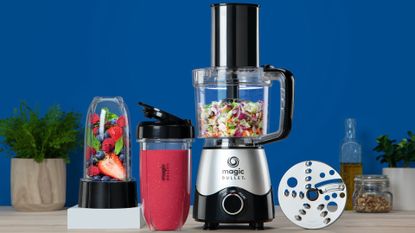
Credit: www.t3.com
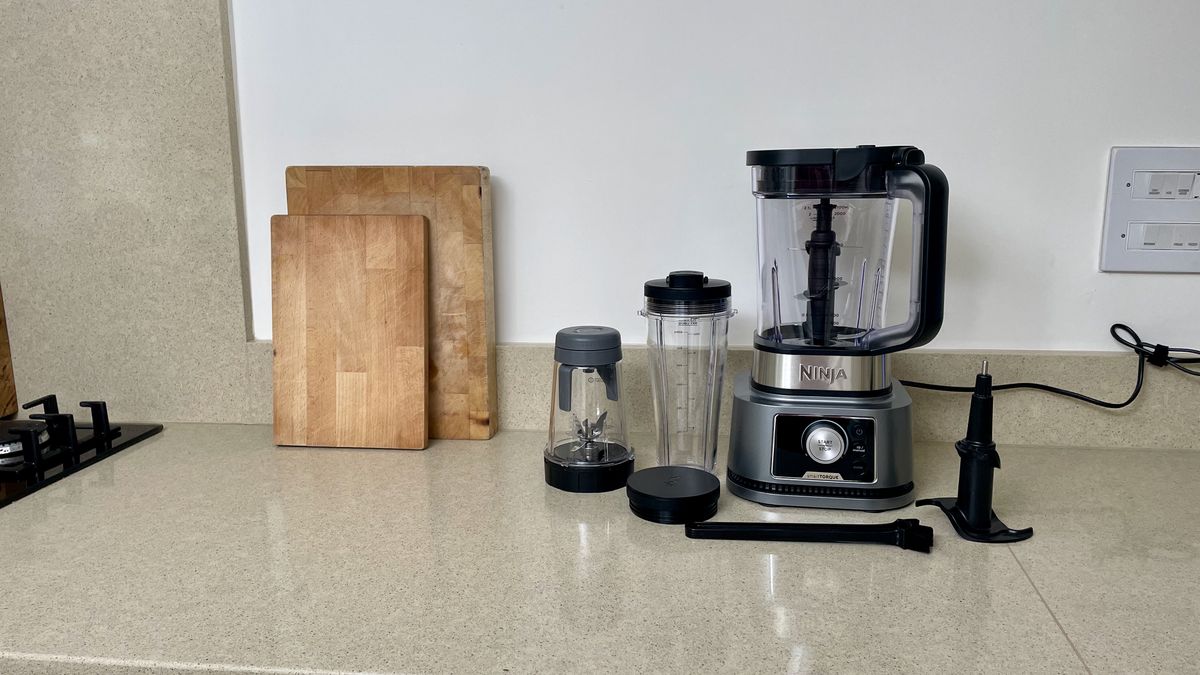
Credit: www.techradar.com
Frequently Asked Questions For Blender Vs. Juicer
Which Is Better, A Blender Or A Juicer?
A blender and a juicer serve different purposes. A blender is great for making smoothies and blending ingredients together, including fruits, vegetables, and liquids. On the other hand, a juicer extracts the liquid from fruits and vegetables, leaving behind the pulp.
The choice between the two depends on your needs and preferences.
Can A Blender Be Used As A Juicer?
No, a blender cannot replace a juicer. While a blender can blend fruits and vegetables into a smoothie, it does not extract the juice like a juicer does. Blenders keep the fiber and pulp intact, while juicers separate them from the juice.
If you want pure juice without any fiber, a juicer is the better option.
Which Is More Nutritious, Blending Or Juicing?
Both blending and juicing have their own benefits. Blending retains the fiber, which helps with digestion and keeps you full longer. Juicing removes the fiber, allowing for faster absorption of nutrients. Both methods provide a good source of vitamins and minerals, but it’s important to consume a variety of fruits and vegetables to get a wide range of nutrients.
Can You Use A Blender As A Food Processor?
Yes, a blender can be used as a food processor to some extent. A blender can chop, puree, and liquefy ingredients, making it suitable for tasks like making sauces, dips, and dressings. However, a blender may not be as efficient as a dedicated food processor when it comes to tasks like slicing, shredding, or kneading dough.
Conclusion
Both blenders and juicers offer unique benefits for your health and lifestyle. When weighing the options, consider your preferences and intended usage. Whether you prioritize fiber retention or quick, nutritious drinks, there is a solution for you. Both appliances can elevate your daily nutrient intake and enhance your overall well-being.



